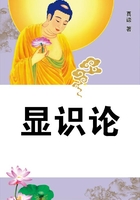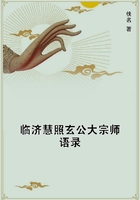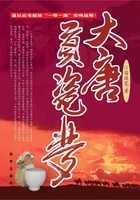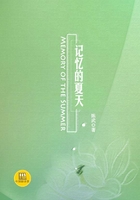Upon the whole matter, and humanly speaking, I doubt there was a fault somewhere, and Jupiter is better able to bear the blame than either Virgil or AEneas. The poet, it seems, had found it out, and therefore brings the deserting hero and the forsaken lady to meet together in the lower regions, where he excuses himself when it is too late, and accordingly she will take no satisfaction, nor so much as hear him. Now Segrais is forced to abandon his defence, and excuses his author by saying that the "AEneis" is an imperfect work, and that death prevented the divine poet from reviewing it, and for that reason he had condemned it to the fire, though at the same time his two translators must acknowledge that the sixth book is the most correct of the whole "AEneis." Oh, how convenient is a machine sometimes in a heroic poem! This of Mercury is plainly one; and Virgil was constrained to use it here, or the honesty of his hero would be ill defended; and the fair sex, however, if they had the deserter in their power, would certainly have shown him no more mercy than the Bacchanals did Orpheus: for if too much constancy may be a fault sometimes, then want of constancy, and ingratitude after the last favour, is a crime that never will be forgiven. But of machines, more in their proper place, where I shall show with how much judgment they have been used by Virgil; and in the meantime pass to another article of his defence on the present subject, where, if I cannot clear the hero, I hope at least to bring off the poet, for here I must divide their causes. Let AEneas trust to his machine, which will only help to break his fall; but the address is incomparable. Plato, who borrowed so much from Homer, and yet concluded for the banishment of all poets, would at least have rewarded Virgil before he sent him into exile; but I go farther, and say that he ought to be acquitted, and deserved, beside, the bounty of Augustus and the gratitude of the Roman people. If after this the ladies will stand out, let them remember that the jury is not all agreed; for Octavia was of his party, and was of the first quality in Rome: she was also present at the reading of the sixth AEneid, and we know not that she condemned AEneas, but we are sure she presented the poet for his admirable elegy on her son Marcellus.
But let us consider the secret reasons which Virgil had for thus framing this noble episode, wherein the whole passion of love is more exactly described than in any other poet. Love was the theme of his fourth book; and though it is the shortest of the whole "AEneis," yet there he has given its beginning, its progress, its traverses, and its conclusion; and had exhausted so entirely this subject that he could resume it but very slightly in the eight ensuing books.
She was warmed with the graceful appearance of the hero; she smothered those sparkles out of decency, but conversation blew them up into a flame. Then she was forced to make a confidante of her whom she best might trust, her own sister, who approves the passion, and thereby augments it; then succeeds her public owning it; and after that the consummation. Of Venus and Juno, Jupiter and Mercury, I say nothing (for they were all machining work); but possession having cooled his love, as it increased hers, she soon perceived the change, or at least grew suspicious of a change. This suspicion soon turned to jealousy, and jealousy to rage; then she disdains and threatens, and again is humble and entreats: and, nothing availing, despairs, curses, and at last becomes her own executioner. See here the whole process of that passion, to which nothing can be added. I dare go no farther, lest I should lose the connection of my discourse.
To love our native country, and to study its benefit and its glory; to be interested in its concerns, is natural to all men, and is indeed our common duty. A poet makes a farther step for endeavouring to do honour to it. It is allowable in him even to be partial in its cause; for he is not tied to truth, or fettered by the laws of history. Homer and Tasso are justly praised for choosing their heroes out of Greece and Italy; Virgil, indeed, made his a Trojan, but it was to derive the Romans and his own Augustus from him; but all the three poets are manifestly partial to their heroes in favour of their country. For Dares Phrygius reports of Hector that he was slain cowardly; AEneas, according to the best account, slew not Mezentius, but was slain by him; and the chronicles of Italy tell us little of that Rinaldo d'Este who conquers Jerusalem in Tasso. He might be a champion of the Church, but we know not that he was so much as present at the siege. To apply this to Virgil, he thought himself engaged in honour to espouse the cause and quarrel of his country against Carthage. He knew he could not please the Romans better, or oblige them more to patronise his poem, than by disgracing the foundress of that city.
He shows her ungrateful to the memory of her first husband, doting on a stranger, enjoyed and afterwards forsaken by him. This was the original, says he, of the immortal hatred betwixt the two rival nations. It is true, he colours the falsehood of AEneas by an express command from Jupiter to forsake the queen who had obliged him; but he knew the Romans were to be his readers, and them he bribed--perhaps at the expense of his hero's honesty; but he gained his cause, however, as pleading before corrupt judges. They were content to see their founder false to love, for still he had the advantage of the amour. It was their enemy whom he forsook, and she might have forsaken him if he had not got the start of her. She had already forgotten her vows to her Sichaeus, and varium et nutabile semper femina is the sharpest satire in the fewest words that ever was made on womankind; for both the adjectives are neuter, and animal must be understood to make them grammar. Virgil does well to put those words into the mouth of Mercury. If a god had not spoken them, neither durst he have written them, nor I translated them.















